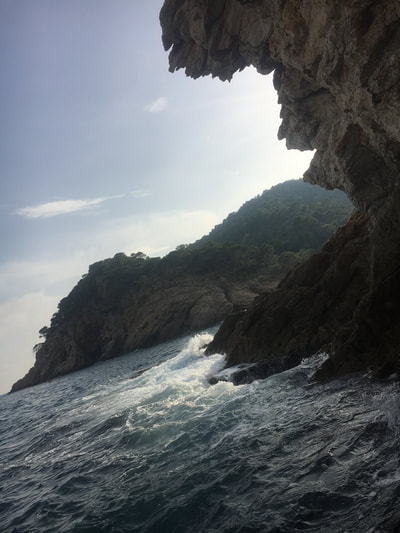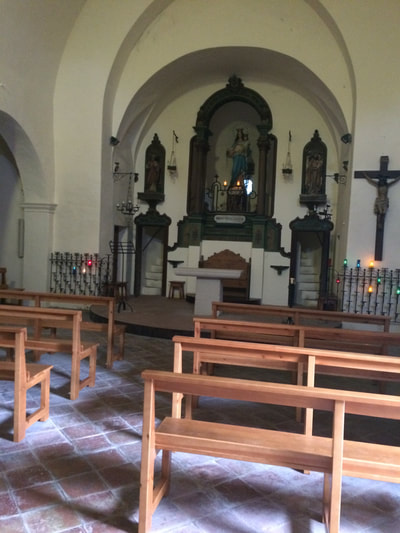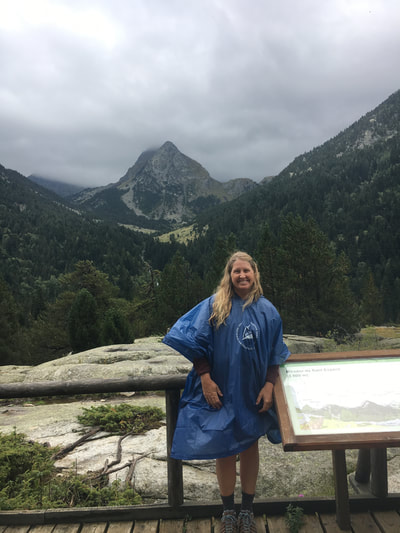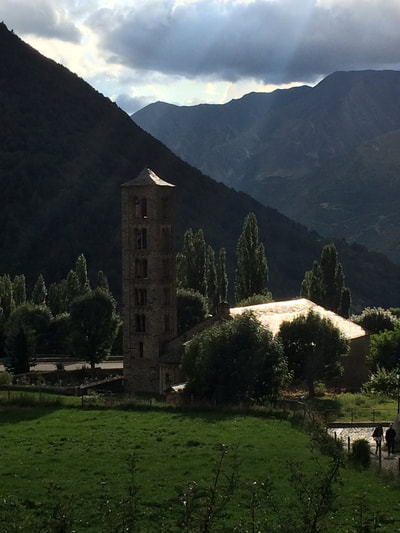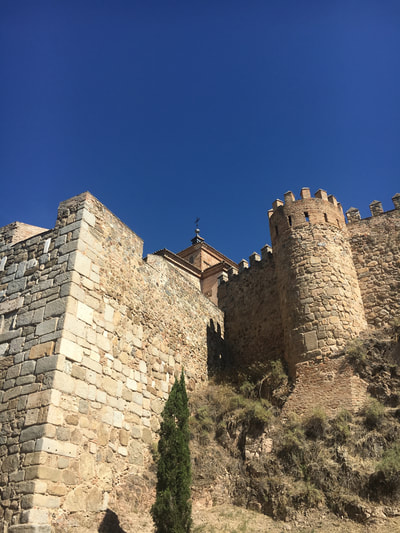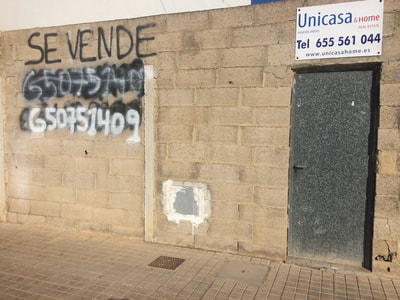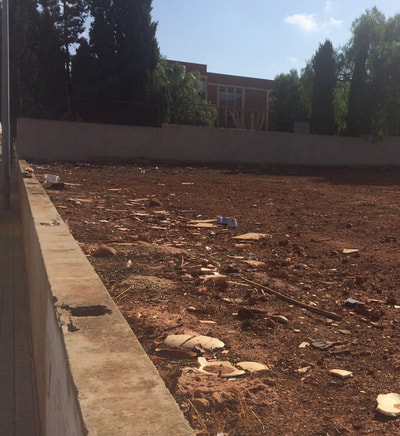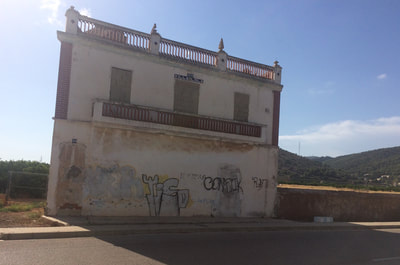|
Our town, Puzol, is not a tourist destination. This isn't to say that tourists don't come here, especially from other European countries looking for a nice beach. But, the town itself is not maintained in a way that presents any contrived picture to outsiders. It is what it is - a town that normal people live and work in. Almost nobody speaks English, they don't have their church set up as an historical destination, there are no overpriced shops and cafes, and there are no hotels. Most people know each other, as demonstrated by two-cheek kissing that is seen everywhere, and the spontaneous street gatherings that happen in the evenings. One place on the edge of town we have named "the hang out" looks like a homeless camp, yet on numerous evenings old ladies in dresses set up plastic chairs to talk, and old men bring their bottles of beer. Uses for space are often unclear until they have been observed for a while. In fact, I have already learned not to assume what may be behind a door. Spain outside the tourist districts is full of contradictions. Some sights that are amazingly beautiful and opulent are coupled with sights that in the United States would signal extreme poverty. One of my favorite early experiences was in the town of Sagunt. We were looking for a place to make copies of our passports and were directed to the library. The directions we were given took us to a dark alley with graffiti everywhere and metal doors amidst foreclosed properties. As we pushed the metal door open that was supposed to be the library's address, it opened into a beautiful air-conditioned space with numerous rooms, books, and employees. Many government offices and businesses have similar window dressing. We have learned not to judge the inside by the outside. You just never know. Even in the wealthiest neighborhoods, beautiful houses exist right beside vacant lots full of trash and graffiti.
One of the most distinct things about Spanish buildings is the disrepair. Abandoned buildings, along with what they once contained, are just left to crumble throughout the countryside. A lavish casino and hotel were once an attraction outside Puzol. They were forced to close and now both buildings remain, curtains and all. The signs advertising them are still up around town, even though they haven't been running for about 10 years. In a country that has had building built upon building for generations, perhaps people don't see the need to actually tear things down. Eventually they will crumble on their own and something else will be built on top. From our terrace we can look down on beautiful orange groves and the Mediterranean Sea. But, we also see numerous concrete slabs that had been slated for some kind of development, pesticides being sprayed every morning, and large old buildings left to rot. These are the contradictions of everyday life in Spain. A pervasive smell in rural Spain is the heavenly mixture of vegetation, orange groves, pine trees, and flowers. I will always remember it. However, this smell is juxtaposed with that of raw sewage from under the streets and overflowing trash cans. We have said amongst ourselves that we will truly be a resident when we can keep our breathing even as we pass from one smell to another. For now we still hold our breath and lament the disrepair.
1 Comment
Sherron
8/24/2017 08:56:06 pm
Interesting --- tourists tend to idealize what a given place may be like, and I confess I idealized your spot. I do know it is beautiful to live where you live, and that makes me glad. I also think every city has its ugly ( in my view ) sections or places - there and here.
Reply
Leave a Reply. |
AuthorSally and her family moved to Spain for a year from July 2017 - July 2018. They lived in a little town called Puzol, which is about 20km north of Valencia. Her kids, Carson and Celia, attended the American School of Valencia, an International School located in Puzol. The goal for the whole family was to experience another way of life, and learn Spanish. Archives
May 2018
topics |
contact
|
